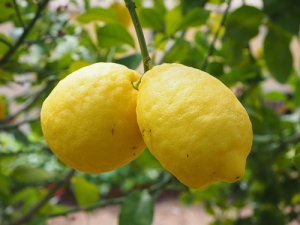Editorial: Happy days
OPINION: The year has started positively for New Zealand dairy farmers and things are likely to get better.
 The citrus industry has become the eighth industry partner to join the Government Industry Agreement (GIA) biosecurity partnership.
The citrus industry has become the eighth industry partner to join the Government Industry Agreement (GIA) biosecurity partnership.
The citrus industry has become the eighth industry partner to join the Government Industry Agreement (GIA) biosecurity partnership.
"It's very pleasing to have New Zealand Citrus Growers Incorporated (NZCGI) on-board, working with the Ministry for Primary Industries and other industry partners," says Primary Industries Minister Nathan Guy.
"This means we can work together on managing and responding to the most important biosecurity risks."
The fresh citrus sector produces fruit worth approximately $60 million annually, of which around $6 million is exported.
Prior to signing the GIA Deed NZCGI has been actively involved in the interim Fruit Fly Council to develop an Operational Agreement for fruit fly. NZCGI representatives have also taken part in technical and partnership workgroups during the development of GIA and associated policy.
NZCGI joins the Kiwifruit Vine Health, Pipfruit New Zealand, New Zealand Pork, New Zealand Equine Health Association, Onions New Zealand, the Forestry Owners Association, The New Zealand Avocado Growers' Association and the Ministry for Primary Industries under GIA.
The World Wide Sires National All Day Breeds Best Youth Camp Best All Rounder plaudit has become family affair, with 2026 Paramount Cup winner Holly Williams following in her sister Zara's footsteps.
DairyNZ is giving New Zealand farmers a unique opportunity to gain hands-on governance and leadership experience within the dairy sector.
Herd improvement company LIC has posted a 5.2% lift in half-year revenue, thanks to increasing demand for genetics.
According to the latest Fresh Produce Trend Report from United Fresh, 2026 will be a year where fruit and vegetables are shaped by cost pressures, rapid digital adoption, and a renewed focus on wellbeing at home.
The Roar is a highlight of the game hunting calendar in New Zealand, with thousands of hunters set to head for the hills to hunt male stags during March and April.
OPINION: The past few weeks have been tough on farms across the North Island: floods and storms have caused damage and disruption to families and businesses.